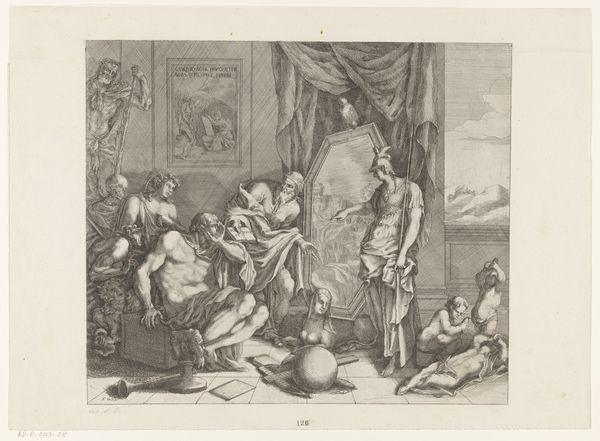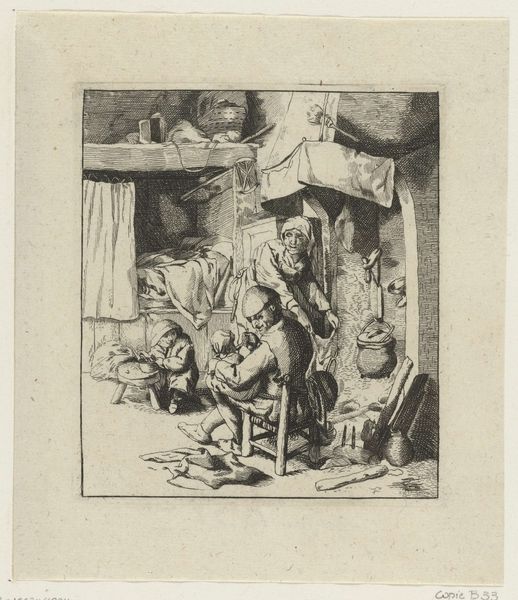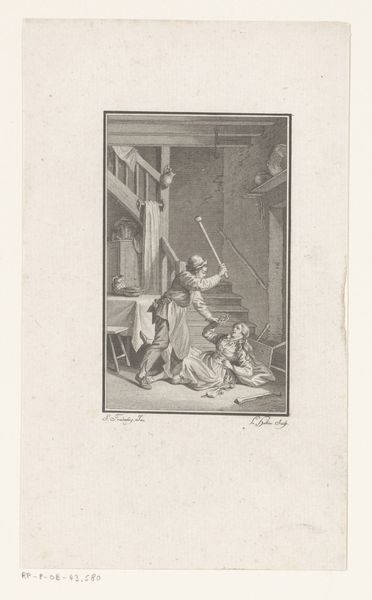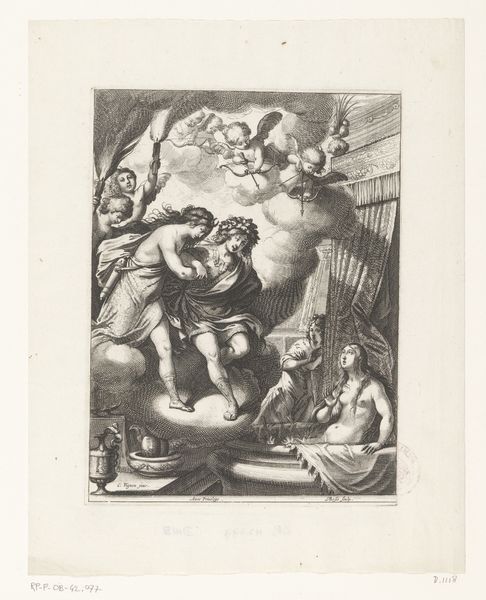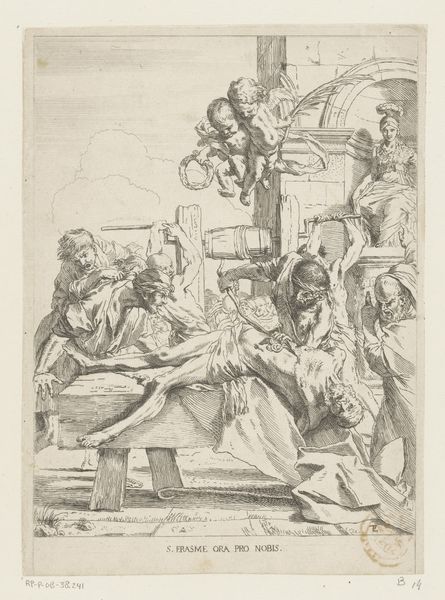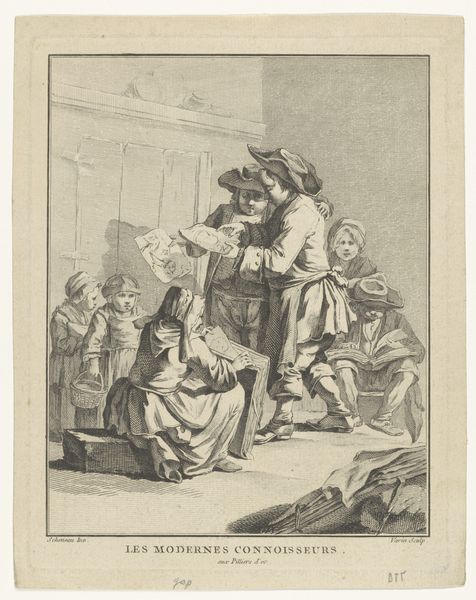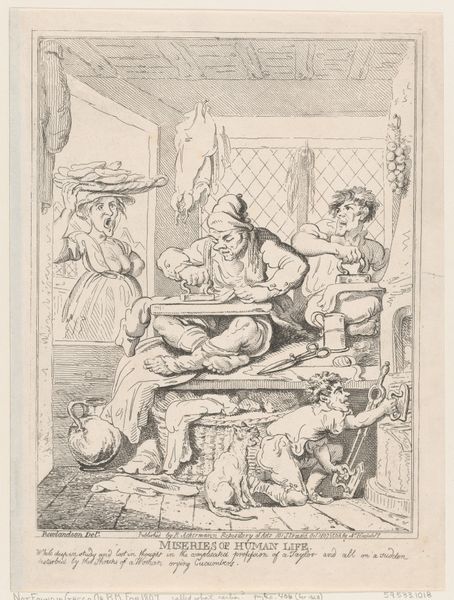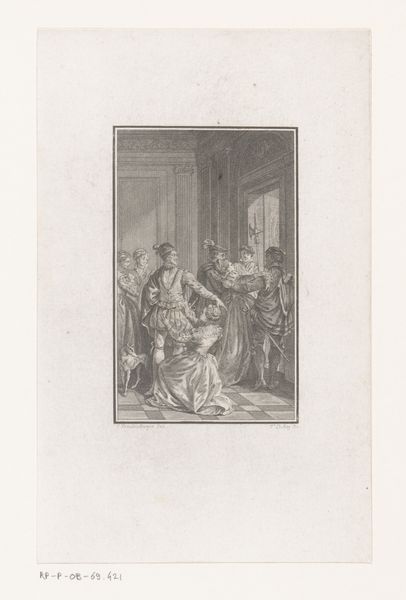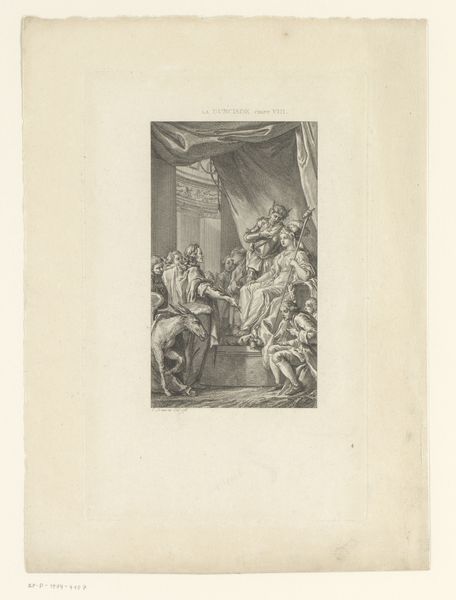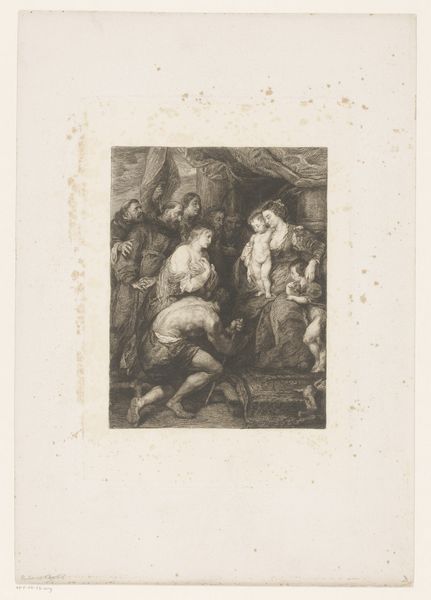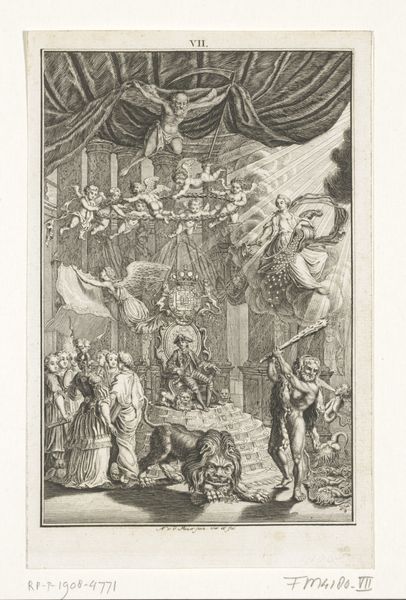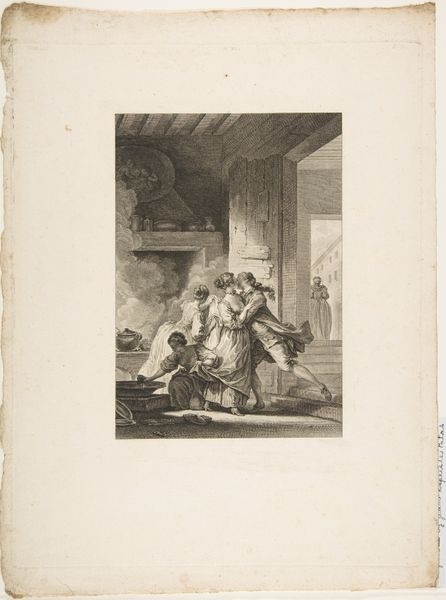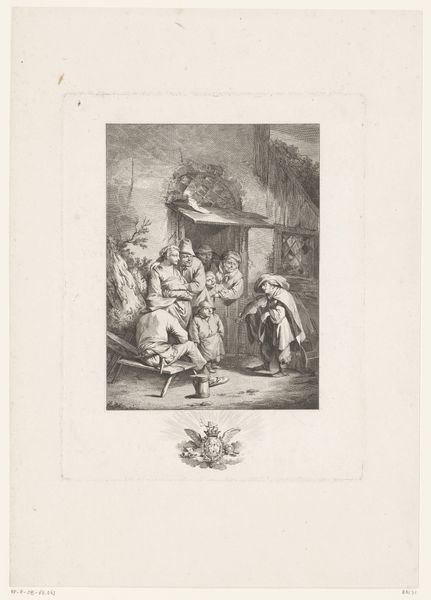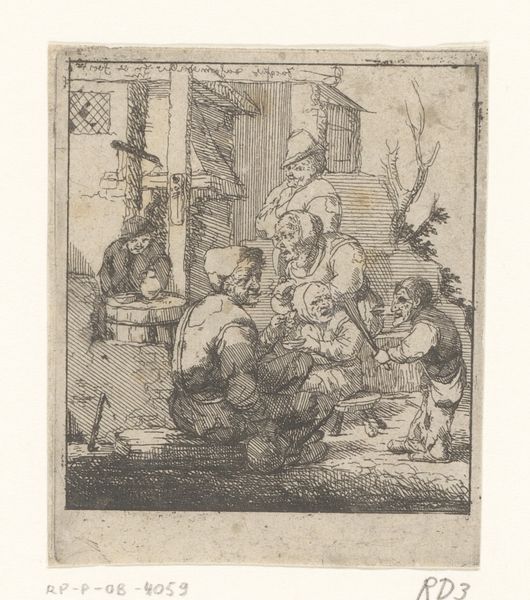
print, etching
#
portrait
#
narrative-art
# print
#
etching
#
old engraving style
#
romanticism
#
genre-painting
#
academic-art
Dimensions: height 267 mm, width 215 mm
Copyright: Rijks Museum: Open Domain
Emanuel Noterman made this print of Anthony van Dyck on his deathbed, likely using etching, a printmaking technique that allows for fine, detailed lines. The image is made by covering a metal plate with a waxy, acid-resistant substance, scratching an image into it, then submerging the plate in acid. The acid bites into the metal where the wax has been removed, creating an impression. The quality of the lines, seen in the rich fabrics and the figures’ expressions, depends on the etcher's skill and the acid's strength. Noterman would have controlled these variables carefully to create such a moving scene. Etching, as a form of reproduction, made images accessible to a wider audience during this period, thus shaping the artistic taste and cultural memory of the public. The amount of labor involved in creating an etching is considerable. The social context reflects how art was consumed, appreciated, and disseminated in the 19th century.
Comments
No comments
Be the first to comment and join the conversation on the ultimate creative platform.
